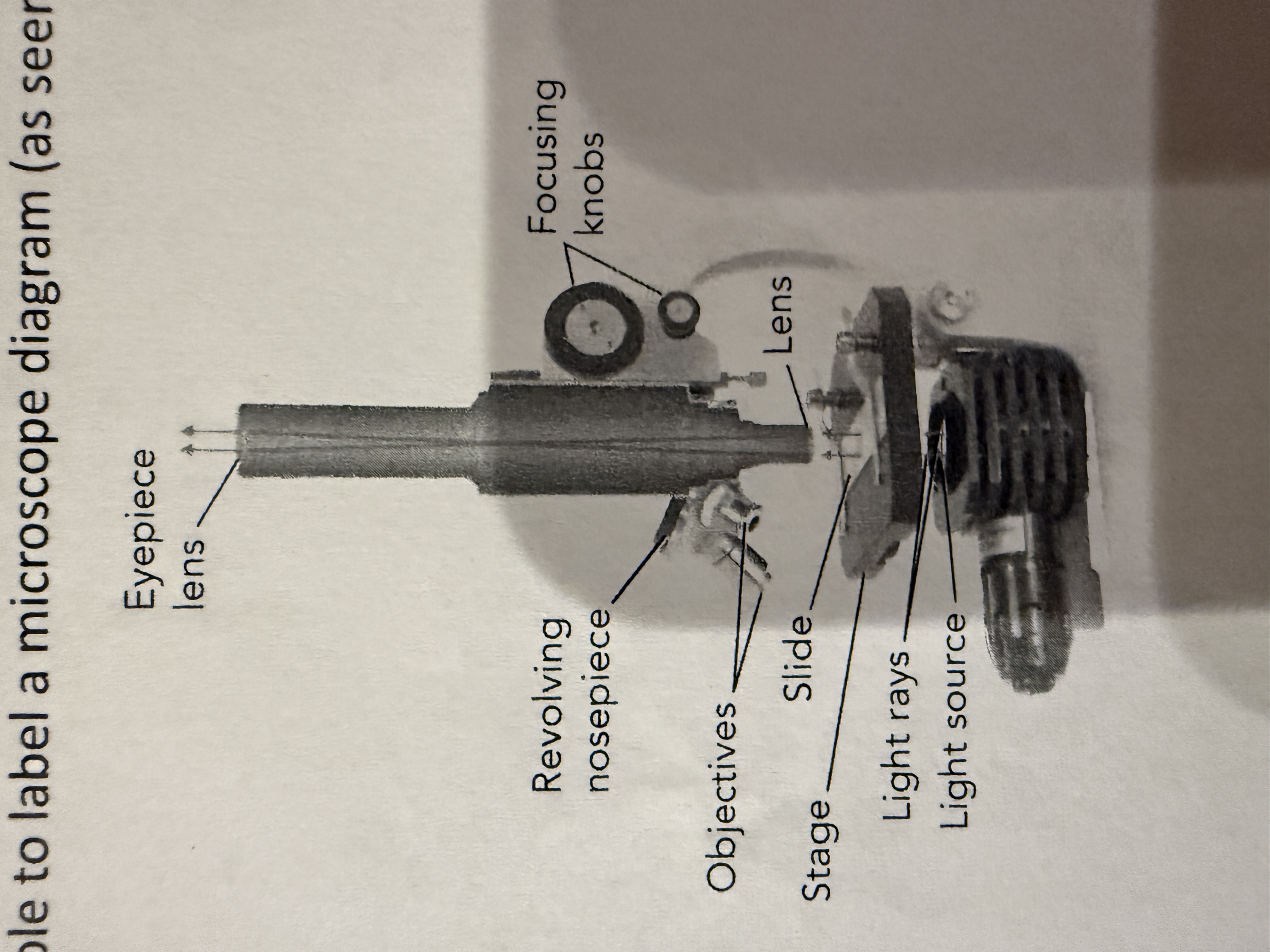Science Test Topic 2, Lesson 1-3
1/18
There's no tags or description
Looks like no tags are added yet.
Name | Mastery | Learn | Test | Matching | Spaced |
|---|
No study sessions yet.
19 Terms
Cells
The basic unit of structure and function in living thing.
What is required for the cell to stay alive/three functions of a cell?
It must perform biological functions (obtaining energy, bringing nutrients and water, and getting rid of waste).
Name the three ideas of cell theory.
All living things are made of cells. Cells are the basic units of structure and function in living things. All new cells are produced from existing cells.
What does cell theory tell us must be true about every new organism?
Every new organism is made of existing cells.
How did the advancement of technology influenced cell theory?
The invention and improvement of microscopes have allowed for a deeper understanding of cell function.
Can a single part of a multicellular organism survive on its own?
No, because cells in multicellular organisms depend on each other to function properly.
Why do cells have so many different organelles and structures?
Each structure/organelles performs a different function.
What are the main difference between cell walls and cell membranes?
Cell walls provide structure and support to plant cells, while cell membranes control the entry and exit of substances in all cells.
Are there more tissues or more organs in your body?
There are more tissues than organs, as tissues are grouped cells that perform specific functions, while organs are made up of multiple tissue types.
What are the three differences between plant cells and animal cells?
Plant cells have cell walls, chloroplasts for photosynthesis, and larger central vacuoles, whereas animal cells lack these structures.
What does the structure and function of multicellular organisms and unicellular organisms have in common and what are the differences?
Both are made from the same basic unit of a cell. A unicellular organisms has only one cell that has to perform all the functions necessary. A multicellular organisms have groups of cells that perform specific functions.
What are the basic difference between an electron microscope and a light microscope?
Light microscopes focus light through lenses to produce a magnified image. Electron microscopes use beams of electrons that scan the surface of the specimen.
Would a electron microscope or light microscope show tiny, complex structures more clearly?
Electron microscopes
Explain resolution
Allows you to see details of an object more clearly. The higher the resolution, the better the image.
Explain magnification
Makes smaller things appear bigger.
How does resolution and magnification correlate?
Resolution improves as magnification increases.
Be able to label microscope.

Explain relationship between cells, tissues, organs, and organ systems.
A group of similar cells work together to perform a specific function, called a tissue.
These tissues work together to make up an organ, which can include multiple tissues doing different jobs.
multiple organs make up an organ system.